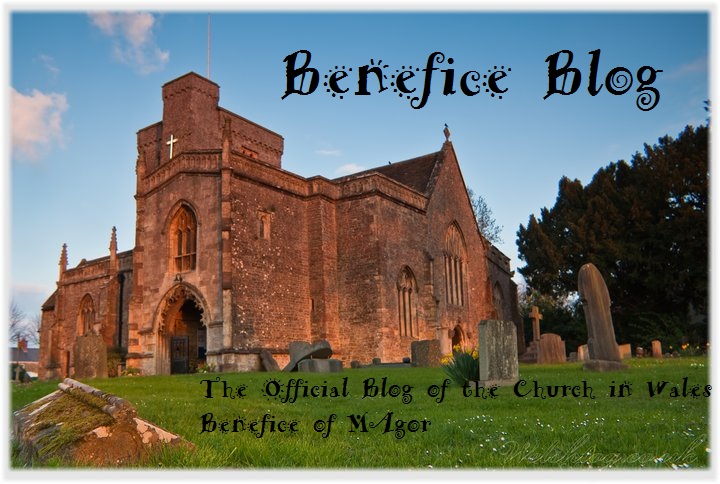
The Second Sunday before Lent – Creation Sunday
Someone is always in control, aren’t they? I can remember talking to children this week about what they wanted to do when they grew up. They said that they wanted to leave home and get a flat….easy as that. They didn’t know what they actually wanted to do, but they knew they wanted independence.
I suppose the never ending diet of pop tarts and pot noodles, late nights, parties and video games is a real dream for youngsters who think that life is all about rules when you live at home and freedom when you manage to break away.
With an average weekly full time wage for an 18 year old being £153 before deductions, I was going to ask how they would pay perhaps £400 a month rent, £100 a month council tax, £80 gas and electric, not to mention water rates, telephone, food, clothes, beer and kebabs and all the other essentials of life.
I can see how by becoming “free” from control, they would be ultimately enslaved to money. I couldn’t see how they could possibly live with less than 2 jobs each.
The truth is that we are all controlled some way or another. Whether it is by employers, the inland revenue, the benefits system, money, families, friends, illness or disabilities, dreams we haven’t managed to realise, or even dreams we have realised – but can’t afford (or don’t want anymore).
The myth that being an adult brings freedom is the most attractive one to children. The Harry Potter books deal with this quite well. Harry is living with his friends, he has more money than he needs, living an exciting life with danger and adventure. He is independent!
We preach a lot about independence and freedom in the Bible, but there is a lot of control and a lot of nurturing that takes place.
Today, Creation Sunday should be called ‘Control Sunday’ not in an authoritarian way, but a positive way. The OT reading is the beginning of the Bible, that great story of creation for the lost people of God, written when they were living in exile. God is saying, however bad things seem, remember what I’ve done for you. Look around and see what is good! CONTROL OVER CREATION
The Psalm (139) reminds us of God’s control not merely over nature, but the old ‘Gods’ pharaoh and his army. CONTROL OVER PEOPLE
The reading from St. Paul to the Romans is a cry for God to come and take control again, because humanity hasn’t been able to properly follow after the example of Christ. PAUL IS ASKING FOR FREEDOM THROUGH CHRIST!
And as we start to consider the Gospel reading from Matthew, with Christ telling the assembled crowds “I tell you, do not worry about your life” we are getting a lot closer to the meaning.
In Christ we can have real freedom, on our own we struggle and fail.
If we let Christ control our lives we can have freedom, we will be free from all that enslaves us.
Heart not head!
And Christ needs to control our Church too!
We say that Christ is the supreme head of the Church – Within the Anglican Church we are very used to structures of hierarchy with Deans and Archdeacons, Bishops and Archbishops and so on – but Christ is the one who gives the Church meaning.
Without Jesus as the head of the Church it is irrelevant. It is no more than a social club who like to come and sit together and sing. In Church life it is very easy to forget about God’s will, about God’s leadership, but Jesus is, as Paul says, ‘the head of the body, the Church.’ And in Christ even the church can be set free!
So if Christ is in control – we can have freedom
Now, in my own life, I’ve realised that the times I thought I was in control I had little control or freedom. Similarly, the times I’ve said to God, “I give up, I’m just going to pray now”, it’s my faith that has seen me through.
Faith must come from the heart – A former Archbishop of Canterbury, Donald Coggan said once that ‘the longest journey in life is from the head to the heart.’ Without the response of the heart our faith is cold, lifeless and ultimately meaningless.
There’s another story of a preacher who was preaching one day in Hyde Park, and he said ‘You must love the Lord your God with all your heart’, at which point he was interrupted by a heckler in the crowd who said that science had proved that the heart was actually just a pump.
The preacher responded by asking the man if he was married, ‘Yes’ the man replied, and the preacher said ‘well go home now and tell your wife you love her with all your pump.’
So what is stopping us from allowing Christ control in our lives – there can be many things – the first and perhaps the most difficult interference we have comes from our own human nature. We get sidetracked into believing we can cope with anything, and that we must sort out all our problems ourselves, when if we share those things with God in prayer, truly share them, truly lay them at his feet, he will offer us all the support we need.
Wherever we might be in our relationship with GOD, it is always worth remembering that is we let him control our lives, we can truly experience the freedom that faith brings.
It is just like being able to eat all the pop tarts and pot noodles you like, being able to party til dawn and sleep til lunchtime – but a lot better for you.

